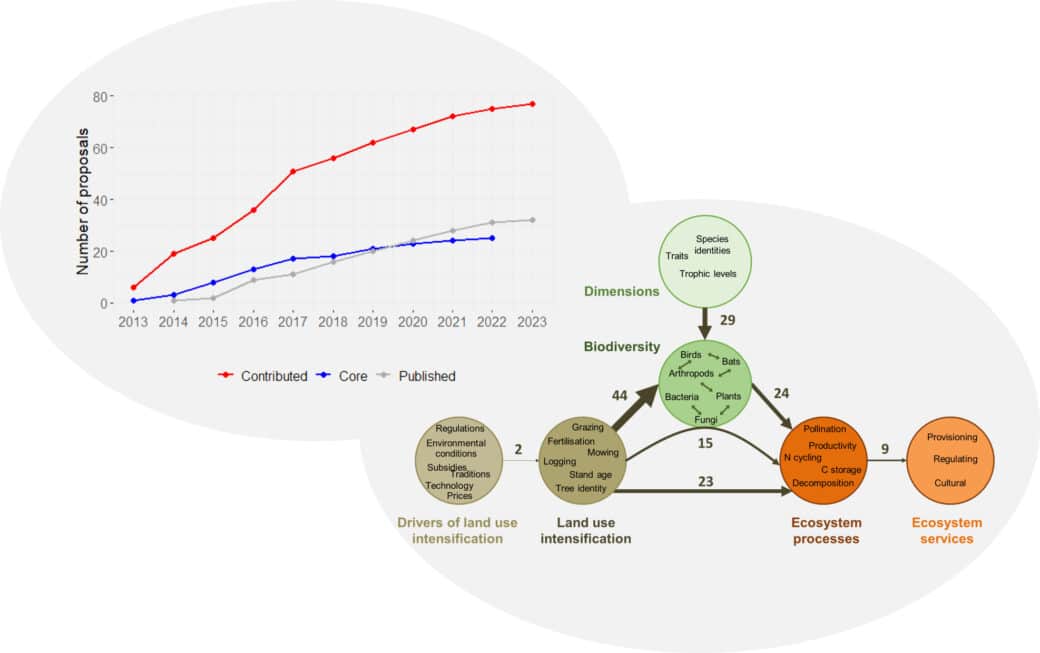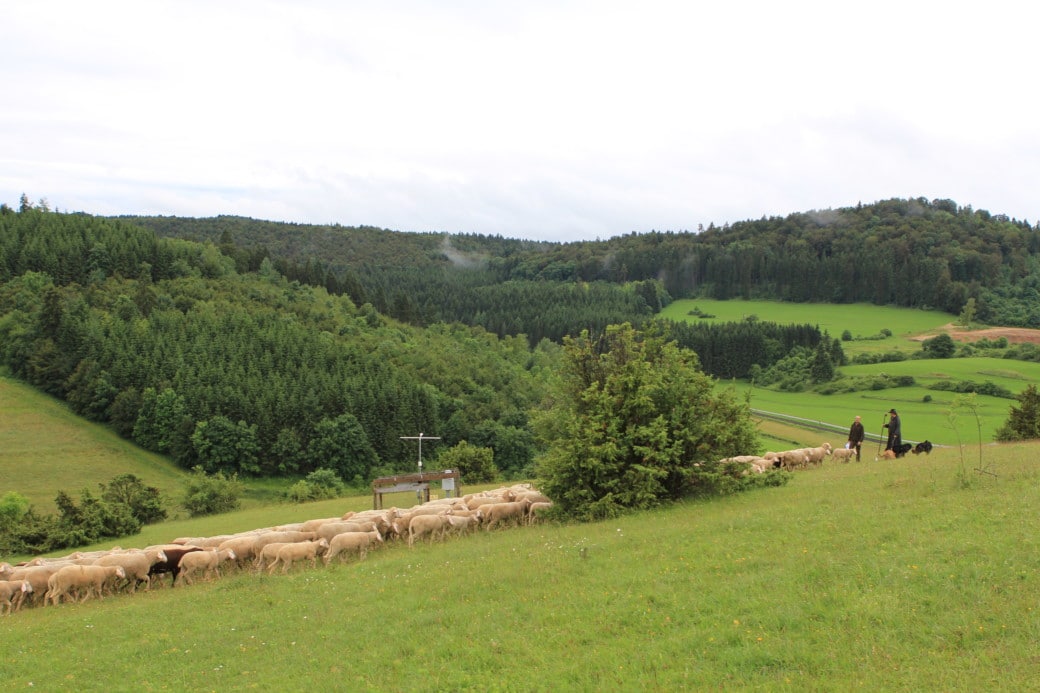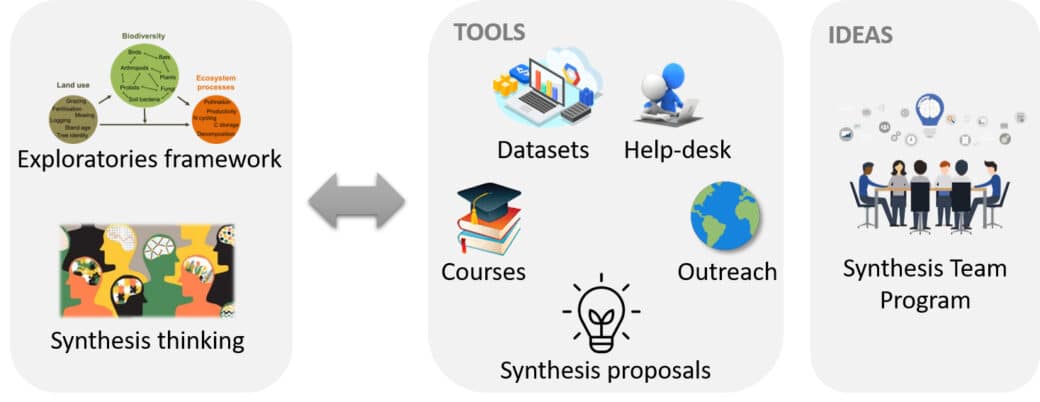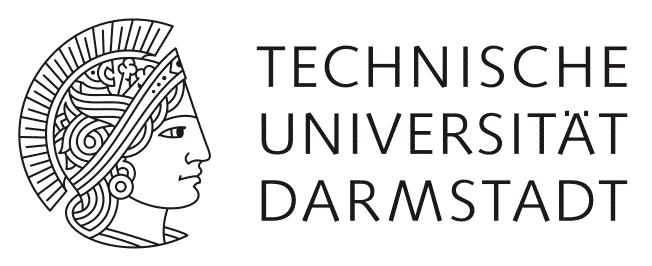Ecological synthesis
A truly general understanding of ecological systems requires a broad perspective and thus the synthesis of knowledge across taxa, ecological processes, as well as spatial and temporal scales. This multi-disciplinary approach to ecosystems is at the very core of the Biodiversity Exploratories.
The Biodiversity Synthesis Core Project catalyses and fosters synthesis work both by Explorers and Teams of Explorers and international scientists to realise the huge added value of this large integrated and interdisciplinary program.
The overall goal of the Core Project Biodiversity Synthesis is to realise synergy within and beyond the Exploratories via synthesis service and by research tackling the guiding questions of the project. We do this in two main ways:
- By directly catalysing synthesis activities within the Exploratories through promoting the synthesis-proposal mechanism, organising and teaching courses, assembling and curating datasets, and by providing a help desk to assist the Explorers with synthesis, statistical or dataset questions.
- By setting up and supporting a Synthesis Program composed of nine targeted working groups (so-called Synthesis Teams) connecting Explorers with international researchers and projects. The Synthesis Team Program concentrates on topical scientific issues to produce highly visible synthesis with two main objectives: 1) to conduct large, comprehensive analyses to gain general insights and promote collaboration within and beyond the Exploratories; 2) to link to international researchers and projects using the Exploratories to test key ideas/approaches, thus increasing the Exploratories’ visibility and enhancing international collaboration.
1. Promoting and catalysing synthesis within the Exploratories
We promote and catalyse synthesis activities by further Explorers using the following tools:
- Synthesis proposals serve the purpose of promoting synthesis work and avoiding overlap within the project. We promote and facilitate new synthesis proposals by encouraging Explorers to address synthesis questions, pointing out knowledge gaps and synergy options, and by giving practical advice on how to initiate and write a synthesis proposal.
- We organise courses, covering topics and tools around synthesis research, by taking into account the needs of Explorers.
- Synthesis datasets are harmonised datasets assembling data from numerous research projects and are essential for synthesis analyses. We collaborate with the BExIS team and the data owners to create and update synthesis datasets.
- We provide customised assistance in formulating hypotheses or handling and analysing large datasets, we offer a statistical help-desk in the form of individual meetings and group workshops.
2. Synthesis Team Program
We organise and support a Synthesis Program with up to nine targeted Synthesis Teams, connecting Explorers with international researchers and projects:
- Theory of land-use effects on biodiversity
- Multi-site experiments
- Social-ecological synthesis
- Consensus on knowledge generated by the Biodiversity Exploratories
- Across large-scale observational platforms
- Lessons for long-term ecological research
- Three further synthesis Teams with open topics emerging during the new phase.
In the previous phases of the Biodiversity Exploratories, the Biodiversity Synthesis Core project has facilitated synthesis in the Exploratories and there are now over 70 synthesis proposals (Fig 1). Over the years we organised several courses, mostly on statistics but also on other topics such as community assembly or trait analyses. We have supported more than 100 researchers, mostly early-career, via our help desk service. Finally, we have assembled synthesis datasets on forests and grasslands, from observational and experimental data, which are used in the majority of synthesis proposals.

We have generated knowledge on the main guiding questions of the Exploratories. We have found that land-use intensification decreases the diversity of multiple groups (Allan et al. 2014), changes their interrelationships (Manning et al. 2015) and homogenises communities (Gossner et al. 2016) in grasslands, and that the picture in forests is much more complex because of the multidimensionality of forest management (Penone et al. 2019). We have found that rare species and functional diversity are important for functioning (Allan et al. 2015, Soliveres et al. 2016) and that biodiversity at multiple trophic levels drives multifunctionality in grasslands and forests (Soliveres et al. 2016b, Felipe-Lucia et al. 2020). Ultimately, grassland management and forest features are key to ecosystem functioning (Allan et al. 2015, Felipe-Lucia et al. 2018). We have also developed various methods (Schneider et al. 2019), concepts (Manning et al. 2018) and explored fine-scale mechanisms (Soliveres et al. 2015, Godoy et al. 2022 unpublished).
We will continue to support the Biodiversity Exploratories with tools and knowledge to catalyse scientific synthesis within and beyond the consortium.
| Prof. Dr. Eric Allan | University of Bern | eric.allan[et]unibe.ch |
| Prof. Dr. Pete Manning | University of Bergen | peter.manning[et]uib.no |
| Dr. Andrea Larissa Boesing | Senckenberg Biodiversity and Climate Research Centre (SBiK-F) | alboesing[et]senckenberg.de |
| Dr. Gaëtane Le Provost | French National Institute for Agriculture Food and Environment (INRAE) | gaetane.le-provost[et]inrae.fr |
| Dr. Caterina Penone | University of Bern | caterina.penone[et]unibe.ch |
| Dr. Margot Neyret | Université Grenoble Alpes | margot.neyret[et]univ-grenoble-alpes.fr |











